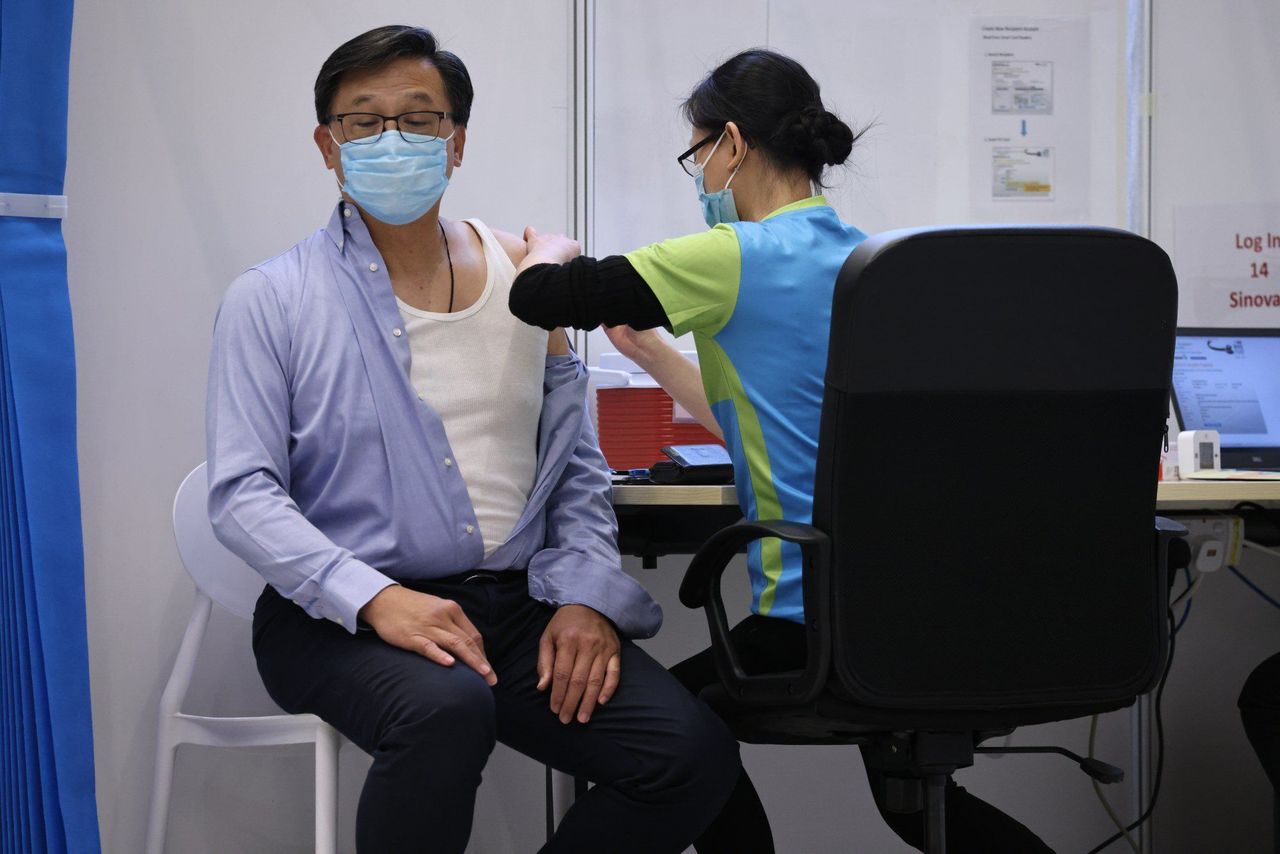Hong Kong News

In Hong Kong, ‘dynamic zero infection’ strategy isn’t working
Patriot and lawmaker Junius Ho Kwan-yiu recently suggested that health experts who were in favour of Hong Kong “living with Covid” could be contravening the national security law. According to him, such a strategy that breaks with the national pandemic policy might “breach national defence and disrupt the order of the society”.
Unfortunately for Ho, no one fell into his fallacy trap. Neither the irony nor the hypocrisy of his comments is lost on us. It has barely been a month since he himself attended the most infamous birthday party in the city that led to the resignation of the home affairs secretary.
Let’s not forget his outrageous outbursts while waiting to be hauled off to quarantine and during his “staycation” at Penny’s Bay. The patriot called for the resignation of the chief executive, described the city’s anti-epidemic efforts as a “sand castle” and claimed he was being “illegally detained” in the quarantine centre.
We had front row seats to Ho living with the possibility of Covid-19 and it wasn’t pretty.
 Lawmaker Junius Ho receives his second vaccination dose on March 22 last
year. A day after Ho suggested advocates of the “live with Covid”
approach might contravene the national security law, the government
issued a press statement saying a discussion of Hong Kong’s coronavirus
policy is not illegal.
Lawmaker Junius Ho receives his second vaccination dose on March 22 last
year. A day after Ho suggested advocates of the “live with Covid”
approach might contravene the national security law, the government
issued a press statement saying a discussion of Hong Kong’s coronavirus
policy is not illegal.
We are going to keep talking about Hong Kong’s increasingly ineffective pandemic strategy in the face of a rapidly changing virus. It is precisely because we are patriots that we should keep questioning why the city’s strategy, adopted with the aim of reopening borders with the mainland, has so far failed to deliver.
Pressure has been mounting against the city government’s zero-Covid strategy not only because the policy has strained businesses and affected people’s daily life. The sight of the government scrambling without a plan B has further fuelled frustration.
Although the health authorities had long warned the public of a new wave, when it did hit the city in recent weeks, it became painfully apparent that officials themselves were unprepared. From the get-go, the government has struggled to get the vaccination programme off the ground. At the end of November, just ahead of the winter surge that the government had talked about, it announced plans to close vaccination centres. Some of those centres are now being reopened.
Vaccine hesitancy stems from the government’s failure to dispel fears and worries about the safety and effectiveness of jabs. For the last two years, we have been asked continuously to fight the virus, to stay home, to take our children out of schools, and to stay put for as long as it takes.
The government tried to sound like it had some sort of plan with the “dynamic zero infection” strategy, but a year-end message from the chief executive titled “Guarding Against Virus Variants, Striving to Maintain ‘Dynamic Zero Infection’” turns out to be nine pages of recycled information, with not a word on what “dynamic zero” means.
The mainland has adopted the “dynamic zero” strategy since August 2021 in its fight against the Delta variant. To really carry out the “dynamic zero” strategy, one must have the capacity to have effective and comprehensive measures to identify localised cases and quickly cut off the transmission chain.
In Hong Kong, the Kwai Chung public housing estate lockdown has made it evident that the government cannot handle lockdowns nor large-scale testing – integral parts of the “dynamic zero” strategy. The current cases of untraceable transmission in our community further show that our tracking capacity is nowhere near what it takes to achieve “dynamic zero”.
Parading officials stating the obvious – witness how last Friday, Secretary for the Civil Service Patrick Nip Tak-kuen told us what we already knew, that the Omicron strain was spreading rapidly, and that the rising number of untraceable cases meant even stepped-up contact tracing efforts might not be enough to cope – does not give the impression that the government knows what it is doing.
Ahead of the Winter Olympics, Tsinghua University’s National Strategy Institute senior researcher Xie Maosong talked about the mainland gradually opening up its borders later in the year. Our country obviously has a plan. Our city, unfortunately, doesn’t.











